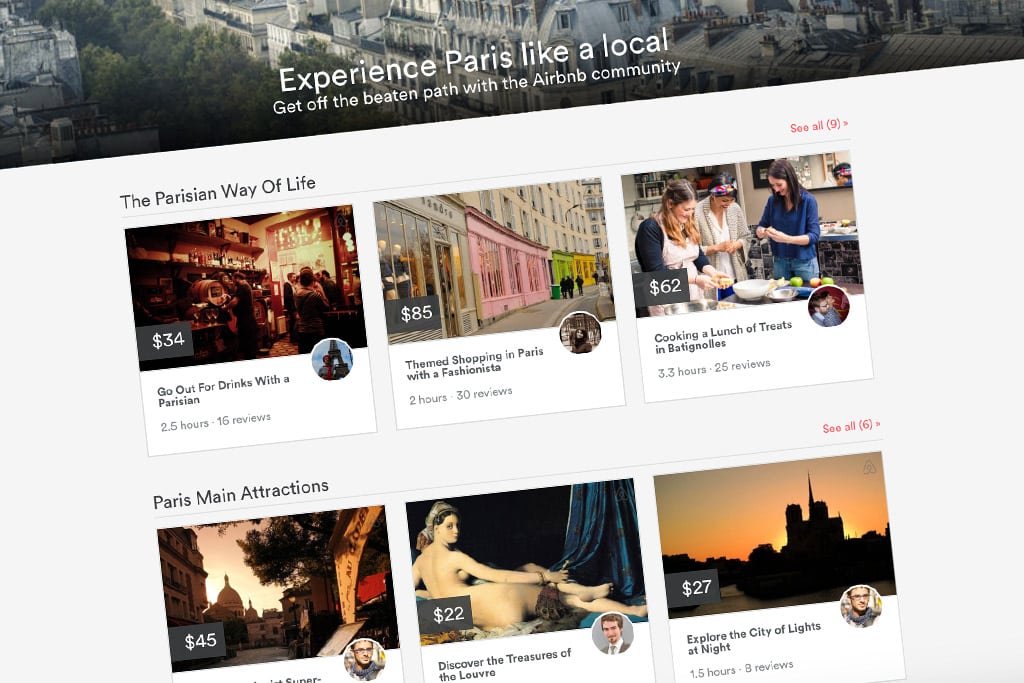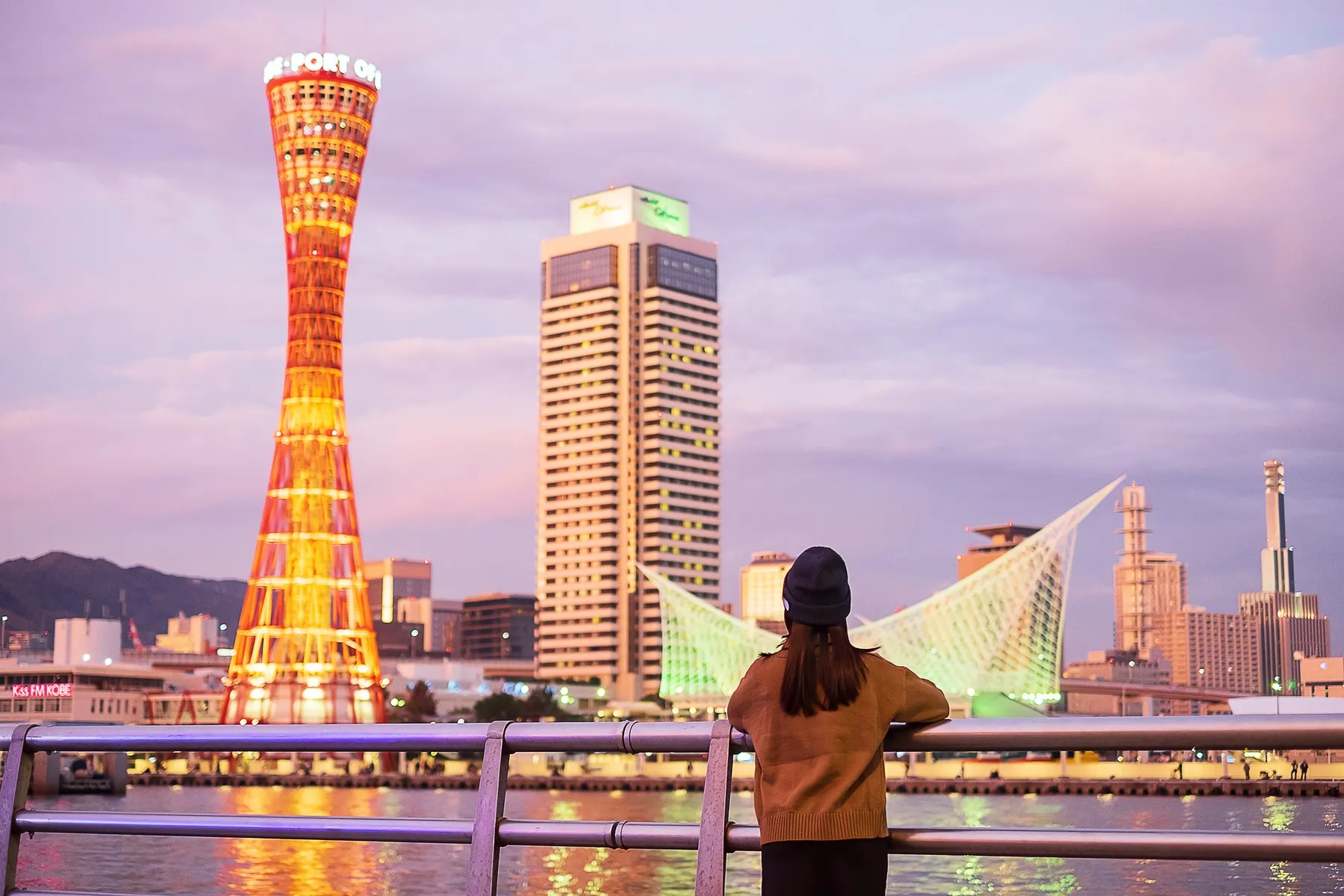Why Big Hotel Brands Need to Act More Like Airbnb

Skift Take
The big hotel brands can do a lot more to elevate the whole “local” trend by recommending apps and web-based platforms that guide guests to local neighborhoods, just like Airbnb hosts do.
The concept of the next generation hotel acting as a hyper-connected knowledge hub in its immediate community is compelling, but for the most part unrealized. The industry has talked at length about the potential role of hotels as gateways into their neighborhood, but in reality, it’s been mostly actualized via hotel associates acting as insider sources, partnerships with local restaurant/bar owners, and maybe a generic list on a hotel website somewhere. That was interesting five years ago.
For the average person booking a guest room at a major chain, the direct connectivity to the local community that so many travelers want is random and remote, for all intents and purposes.
There are exceptions of course. At the Columbia Marriott Hotel in South Carolina, the Soda City Farmer’s Market takes place every weekend next door. The Marriott’s Midlands Modern Southern Food Arts restaurant is ranked as one of better restaurants in town due to its menu crafted with ingredients sourced at the market. Assistant GM Jeff Kaplan says the hotel also works with a local startup called Columbia Food Tours that brings visitors to half a dozen local farm-to-table restaurants in the downtown core, including Marriott.
“Most people don’t sit around on a Friday night and say, ‘Hey, let’s go to the Marriott for dinner, but that’s what happens here,” explains Kaplan. “We don’t serve typical business hotel food and that’s a pretty unique thing.”
Still, that’s often as good as it gets in terms of how a big brand can immerse guests in the local community. So is the idea even worth considering anymore?
We spoke with Gray Shealy, executive director of the Master's of Hospitality Management Program at Georgetown University. Previously, Shealy was the global design director for W Hotels. He says hotels should look to Airbnb and other sharing economy companies for inspiration. While hotels have always been an entry point into a destination, they could be more immersive portals into the un-touristy areas within their destination.
Following is our full Q&A with Shealy about the crossroads where the big box brands find themselves.
Skift: Branded hotels have obviously come a long way in terms of offering a more localized experience, but the evolution has plateaued. How do the big brands innovate from here?
Gray Shealy: I've watched the evolution of it, and helped especially at Starwood usher in the notion of storytelling and integrating a local experience into the globalized big box world. One of the big things that happened in the last year is really this onslaught of Uber and Airbnb, and these accessible technologies that have changed how people access hospitality.
I would argue that Airbnb actually owes a lot of its success to this notion of localized contextualism and the search and quest for authenticity, especially as you talk about it in cities. Because what Airbnb allows a user to do is really have an accessible localized experience, something that gets rated and reviewed, and something that they can be comfortable with, and maybe a little less price prohibitive. People are looking to relate to people in integrative neighborhoods and get away from the touristed restaurant establishments and things like that.
Skift: So the major hotel groups can’t compete with Airbnb in that sense because they’re usually not located in what might be deemed a local neighborhood. That’s a big part of the beauty of Airbnb—the neighborhoods.
Shealy: What better way to have a localized experience than by staying in a neighborhood that's off the major tourist market, the overdeveloped areas. You're going to see people who really like that interaction of what you might have traditionally had in a B&B but in some ways a lot more modern. The Airbnb platform allows guests to be comfortable with that idea. They can see pictures of what it is. They can get ratings and reviews of the people they're going to stay with. Likewise, the owners will get a review of the people who are staying with them. It allows people to go into something that they might not normally have done before.
It allows them to take that leap. Then all of a sudden, they are staying in a neighborhood that hasn't been previously inhabited by short term residents like tourists. Suddenly, you have cities adapting the way they're thinking about how neighborhoods are run, how neighborhoods are laid out, just the way that local small restaurants market to different clientele. I think what's happening is Airbnb will start to change the fabric of cities in general and the way that small businesses approach authenticity.
Skift: So why couldn’t the big brands partner with apps like Detour to at least direct guests into those neighborhoods? If I’m traveling on business and my company has me at a Sheraton, I would love that kind of insight. The big hotel brand executives always say that guests have enough sources of travel information, but I don’t have time to do all that research. I want Sheraton to give it to me.
Shealy: It seems like that they should, because what a fantastic thing. I think you're just bringing to highlight another one of these transformational pieces of technology that's changing the way that we can experience a city, also due to our quest for this localized yet customized world. Like with Detour. You can do it at your own pace, you can do it individually, and you can get to learn a lot.
Everything's rooted in this deeper quest for knowledge, for information, for education. We're self-educating ourselves as we travel. I always thought that travel was the best way to educate one's self in the first place, especially to be more knowledgeable and open-minded about the world. I think Feastly is another great example of one of these apps that has transformed the way we experience cities. It allows someone to host dinner parties essentially in their house for a group of different travelers. It’s another deeper access to having a localized experience, which I think is quite interesting.
Going back to your original question, which is the part about are hotels offering this, I really think hotels, if they're not starting to offer these types of amenities, they really should be thinking about how they are partnering with these next generation technology apps.
Skift: So what’s the challenge? Is it liability or complacency or something else?
Shealy: I think some of the hotel companies have been so scared about the onset of Airbnb, for example, that they've avoided it and thought about how it's going to ruin their business, rather than maybe how they could take advantage of some of these applications themselves.
For example, W has this position where they hire a person who essentially stands around in the lobby space, and they will talk to people and give them insight about the town, the cool things to do, new museum openings, the hottest latest restaurant. They hire people who are super connected in the local community for that position. They're paid to be connected and share their contacts with guests in their hotel. Why couldn't that person partner with, let's say, a Detour or Feastly for example, and start recommending that to their guests: "Hey, I know that this person is going to be hosting a dinner party. I've been there myself," etc., etc.
It takes the concierge service to a very deep and newfound level. That's the way that hotels really should partner and take advantage of all these things. They can't do it all themselves. I think the world is largely leaning towards a partnership, a conglomeration of all these different things coming together to offer services to people who don’t know that they exist.
It takes the concierge service to a very deep and newfound level. That's the way that hotels really should partner and take advantage of all these things.
Skift: So that leads to the next inevitable question when we’re talking to hotel executives about this. They always say, "If we integrate this into our guest experience or if we don't, it probably isn't going to impact our bottom line either way, so why do it?" So, for them, it’s not really going to drive bookings. That's their perception. What do you think about that?
Shealy: Wow, that's a pretty interesting thought process. I think you have to go back to the root of what's happening in the hotel industry. I would say that it might be a little shortsighted. I think customers make decisions on places to book ultimately with how they relate to either a brand or a space or a way a space is marketed, or maybe the reviews of the space. For example, I use TripAdvisor as a major litmus test when booking a property. I would, in fact, use TripAdvisor over just looking at a brand these days because TripAdvisor provides that peer review. You get a very realistic look at what's happening in the property.
I think the more the users and the reviewers comment and say things that relate to maybe what certain guests are looking for, at the end of the day, people are going to make their booking decisions based on that. Now it depends on the type of traveler that you're talking about too, such as corporate or leisure. But maybe even the majority of corporate travelers who have their own preferences and affinities, and are by and large making more decisions independently these days, yeah, it's going to make a difference for them too.
The question is how do the full service and select service brands, these major brands, how do they start offering a more customized approach to the mass traveler? I think that's a big question for the future.
Skift: It seems the big hotels could at least promote Detour, Feastly and any number of other digital travel platforms to help guests customize their experience. The big brands are always talking about personalization but it always sounds like a lot of BS, unless you consider pillow menus the cutting edge of personalized guest experiences.
Shealy: I would say it's certainly a start. I guess the question would be, there's got to be a point at which you've got to introduce those applications. But then the question is, how do you take that to a next step, and how do you utilize the technology that exists and that, for example, you and I already know about? How do you take it to the next level? How do you make it more integral to that particular property or that particular brand as an initiative that makes it unique to that one place? I think that's what people are going to be looking for as well.
People want more and more and more. Their demands are ever increasing, so how could a Sheraton, for example, or some other big full service brand partner with a Detour? Could it be, for example, the guests of a Sheraton property get, I don't know if they pay for it, but could it be a free tour or a customized tour just for the Sheraton property that leaves from the doorstep of a Sheraton and takes people around for several different routes?
Skift: That would be a way to potentially integrate the tech more and take it to another level, like you say, by partnering directly with these companies and creating customized experiences for that specific property.
Shealy: Exactly. It's customized, but it's not. It feels unique to the space that you're going and you're investigating as a traveler, but it doesn't require maybe a huge investment on behalf of the hotel.
Skift: It’s like you and I think about this and we talk about this, and it seems really cool, but then you just don't see it happening very often. I mean, W is doing some very interesting things with the fashion designer content marketing. That's amazing, but you don't see it at a lot of other hotels except for the really high-end boutiques. It's just not happening.
Shealy: Yep.
Skift: OK. Do you think there's still a lot of myths about the business traveler? I was just on a business trip in San Francisco, but I extended a day because I wanted to see the local areas and test drive Detour. Do you think there's enough of this attention from hotels on corporate traveler demand for local experiences?
Shealy: I think that's where we're getting into that question of what audience are we talking about. I think a lot of attention has been paid to, again, the leisure traveler, more the you and I type travelers frankly, which is easy because I would frankly say we're easier demographic riddles, but more limited. We're these people who like to pioneer these fresh ideas. Now you're talking about more mass travelers. You're talking about people who travel very frequently. They have limited free time when they're there. They might be restrained by certain business restrictions or regulations. I think it's a question of what would appeal to their tastes, so to speak.
At the end of the day I still think that, by and large, society in general is looking for a more localized and authentic experience, and the needle has moved in that direction. It's a question of how deep do you want to go. There might be a guest services person that's there who says, "Hey, when you check in, we have this service available for you. It's free. You can use it." Who knows, that just might be the thing that makes or breaks their stay and really influences them to become brand advocates too.
Skift: What do you think of this idea that the next generation hotel is not just immersing guests in the local community, but because it’s connected to all of these different elements in the city, it becomes its own little knowledge hub or even neighborhood media company. I love that. That's just where I see things going.
Shealy: That certainly is an interesting idea. I've never thought about it in that way, but this idea of, yeah, a knowledge hub, a place, a resource, a library for the traveler. It also suggests that both the websites and maybe the technology applications that you have on your phone, plus the guest services person that you deal with on the front line when you're actually checking in, those three touch points are the spaces in which those hotel exchanges really are, as I said, made or broken. Actually, I love that.




